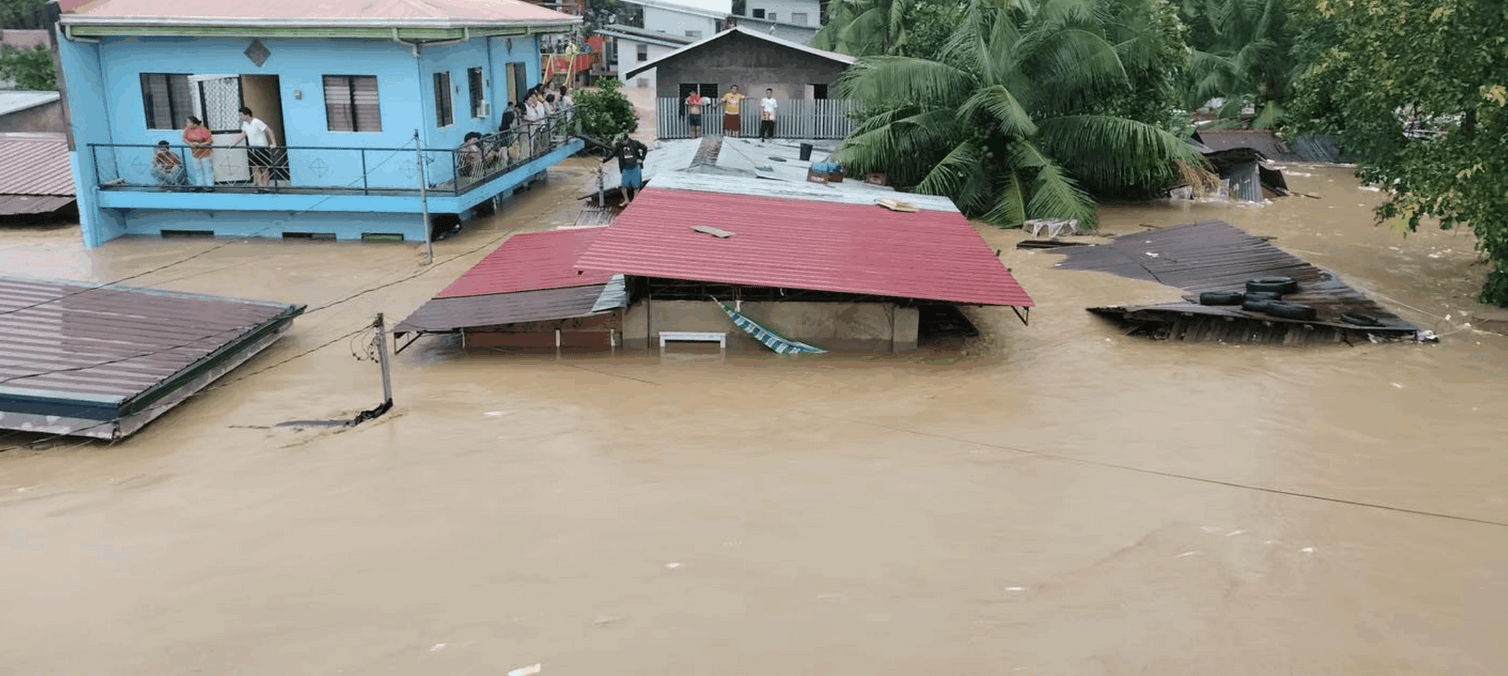Emergency preparedness at home (for flooding incidences)
As I have written in my last post here, my husband and I became victims of Ondoy’s wrath. We are thankful that we are alive and well but also realized that like all the other victims, we were so unprepared for what is to come.
With the lessons from Ondoy, we are (hopefully) better prepared. As I type this, our personal possessions are now packed in big plastic bags, ready for evacuation in case typhoon Pepeng brings in another flood. However, before we even began packing, we already developed a good ’emergency plan’ in case of heavy floods. I would like to share them here in the hope that it can also help others in their disaster preparedness.
1. Place big empty plastic bags (with strings) in all shelves, cabinets and other strategic areas. Make sure that everyone in the household know where they are placed. Use an easy-to-remember “location code”. For example, my hubby and I placed the bags on the left side of the cabinets/shelves only. This way, you can easily put all the stuffs inside the bag, tie it up (practice a fast way to tie up the bags), and run away with it (I swear, this will save you a lot of money in terms of not having to deal with wet clothes, linens, books, etc.)
2. Agree on priorities. My hubby and I used this as guide: (1) Money and checkbooks; (2) electronic goods; (3) books and documents; (4) food and groceries; and finally, (5) clothes. Why did we put the clothes last in the list? Simple. We realized that after the floods, clothes (and even kitchen stuffs like pots and pans) can be washed afterwards. We just spend on the laundry and even ask friends to help out. While with books, when they are soaked with floodwaters, it’s the same as bidding them goodbye. Final. Precious money (and memories!) down the drain. In my case, books are constant companions in my travels. Others are gifts from people close to me. It was really really sad for me to lose them. The sentimental value is much more important actually.
With this list of priorities, we know what to try to save first. If you have 5 minutes only, then you just try to run away with your money and checkbooks. If you have 10 minutes, then you can run away with the electronic goods, too. If you have neighbors who can help (which we luckily had!!!), then ask them to carry all the electronic goods while you rush to where your cash and checkbooks are located.
3. Divide the house into “zones” and assign each household member to each zone. For example, hubby was assigned to the living room area (still following the list of priorities in No. 2 above), and I was assigned to one half of the bedroom area (where the books are). Plan the “pathway” or traffic direction of work so that the household members will not waste time bumping into one another. In the example here, after his task in the living room, hubby will then run next to the 2nd half of the bedroom area (following a direction that will not interfere with my direction). After my task in the bedroom, I then run to the kitchen/dining area.
This way, we don’t waste time trying to find out where to run first.
4. If there is enough time (in this current case, we have always been notified about the developments of typhoon Pepeng), prepare an separate overnight bag in case you needed to temporarily stay with a relative for a day or two. This is one reason why even if a friend (big thank you to Jaja!) offered her house for us on the first evening of Ondoy’s attack, we decided to stay in our dirty and damp flat because all our things are in separate bags/boxes and it would be difficult to prepare an overnight kit just so we can stay over in a friend’s place. We were so tired, too. With an overnight bag handy, you can just temporarily forget about your dirty house and try to have a good night’s rest because surely, you need a strong body and mind to be able to start life again after a horrible flood.
5. It’s not realistic to say, “don’t panic” but hey, we can try that mode. It’s hard not to panic. But it will definitely not help if you are going to lose your focus because you are already very panicky. Adrenaline rush helps so a certain “panic” actually helps. However, try to go easy on your nerves and believe that God and angels will help! (They always do!)
The above is a very simple emergency plan for a flood and I really hope this can help others who would be in a similar situation. I don’t like it to happen to anyone but then again, as the cliche goes, prevention is always better than cure.
Have a nice weekend everyone. Let us continue to pray for the victims of Ondoy and work and heal together as a nation.




Leave a Reply